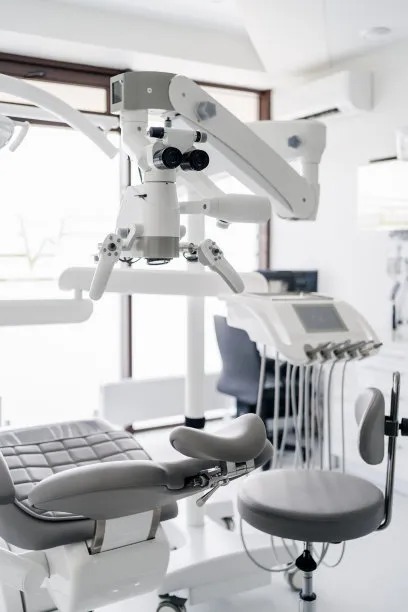Exploring the Benefits and Innovations of Dental Implants for Enhancing Oral Health and Restoring Smiles
Summary: Dental implants have revolutionized the field of dentistry, offering a robust solution for tooth loss that enhances oral health and restores confidence in smiles. This article explores the manifold benefits of dental implants, including their significant role in improving oral functionality, their durability and long-term cost-effectiveness, recent technological innovations elevating standard implant procedures, and their psychological impact on patients. Each section will delve into how these factors contribute to enhanced quality of life and better overall health for individuals who choose dental implants as their restorative option.
1. Enhancing Oral Functionality and Aesthetics

Dental implants are designed to closely mimic the structure and function of natural teeth. Unlike dentures or bridges that may shift or fit poorly, dental implants are anchored securely in the jawbone, offering unparalleled support for chewing and speaking. Patients often report improved oral functionality as they regain the ability to eat their favorite foods without worry.
Aesthetically, dental implants contribute to a natural appearance. They are customized to match the color, shape, and size of existing teeth, making the transition imperceptible. This is particularly beneficial for individuals concerned about their smile’s appearance after tooth loss, as dental implants not only fill gaps but also restore facial structure by preventing bone loss associated with missing teeth.
The realistic feel of dental implants boosts users confidence, leading to more social interactions and a more active lifestyle. Overall, the enhancement of both oral functionality and aesthetics significantly boosts the quality of life for individuals choosing dental implants.
2. Longevity and Cost-Effectiveness of Implants
Dental implants are known for their longevity. With proper care, they can last a lifetime, unlike traditional dental solutions that may need to be replaced every few years. The durability of implants stems from their titanium composition, which integrates well with existing bone, providing a solid foundation for the prosthetic tooth.
In assessing cost-effectiveness, while the initial investment in dental implants may seem higher than other restorative options, their long-term value often outweighs the upfront costs. Patients save money over time by avoiding frequent replacements and repairs associated with dentures and bridges. Furthermore, implant-supported restorations often eliminate the need for bone grafts or other costly procedures down the line, keeping overall dental expenditures lower.
When considering both quality of life and financial implications, dental implants prove to be an intelligent investment for many, proving beneficial in the long run.
3. Innovations in Dental Implant Technology
Recent advancements in dental implant technology have greatly improved the procedures efficacy and safety. One of the most exciting developments is the introduction of 3D imaging and printing, which enables dentists to create highly accurate models of patients’ mouths. This precision allows for tailored implant procedures that enhance the overall fit and durability of the implants.
Another innovation is the use of advanced materials that promote faster healing and better integration with the jawbone. For instance, innovative coatings can encourage bone growth around the implant, significantly reducing recovery time and improving success rates.
Robotic-assisted surgery is a game-changer in guiding the placement of implants more accurately than ever before. This technology not only enhances precision but also minimizes human error, paving the way for more successful outcomes and higher patient satisfaction.
4. Psychological Benefits of Dental Implants
The impact of losing teeth goes beyond physical health; it often affects individuals psychological well-being. Dental implants help alleviate many of these concerns, giving individuals a sense of normality and restoring their confidence. Many patients report feeling more comfortable in social settings after receiving implants, as they no longer have to hide their smiles or worry about their appearance.
Beyond mere aesthetics, the ability to eat, talk, and live freely without the hindrance of tooth loss also contributes positively to mental health. Returning to a full range of activities without the embarrassment of ill-fitting dentures or gaps in teeth allows individuals to engage more fully with their lives.
Moreover, the empowerment gained from choosing an effective restoration option like dental implants can lead to improved self-esteem and overall happiness. The interconnection between oral health and emotional well-being emphasizes the critical importance of seeking restorative options.
Summary:
Dental implants have emerged as a key solution in restorative dentistry, enhancing both the oral and psychological health of patients. With benefits ranging from exceptional functionality to lasting durability and a positive psychological impact, the innovations in this field continue to evolve, offering hope to those seeking to restore their smiles and oral health.
This article is compiled by Vickong Dental and the content is for reference only.



